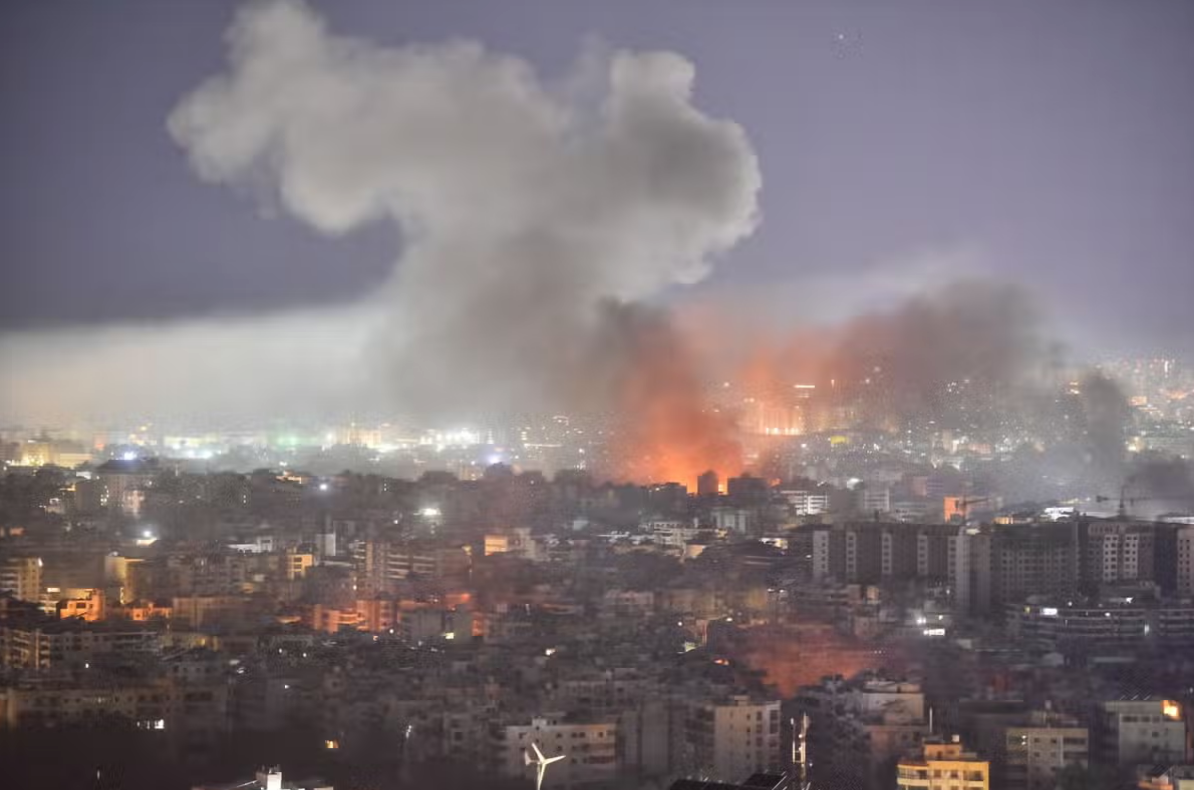The situation in Lebanon has reached a critical juncture as ongoing military actions between Israel and Hezbollah have intensified, leading to significant humanitarian crises and geopolitical ramifications. This article explores the current events unfolding in Lebanon, the humanitarian impact, and the potential repercussions for the region and beyond.
Current Events
Intensified Military Actions
In recent weeks, Israel has escalated its military campaign against Hezbollah, launching airstrikes across Lebanon, particularly targeting the southern suburbs of Beirut, a known Hezbollah stronghold. Reports indicate that Israeli airstrikes have resulted in over 1,400 deaths and nearly 7,500 injuries, with more than one million people displaced within Lebanon. The Israeli Defense Forces (IDF) have claimed to dismantle several Hezbollah weapons depots and tunnels during localized raids in the southern border region.
Hezbollah has responded with rocket attacks into northern Israel, causing damage to buildings and prompting evacuations in affected areas. The group has claimed to have repelled Israeli incursions near the town of Adaisseh, leading to ongoing clashes between the two forces. The situation has been further complicated by the death of Hezbollah leader Hassan Nasrallah, which has left the group without a clear successor, raising questions about its future leadership and strategy.
Humanitarian Crisis
The humanitarian situation in Lebanon is dire. The United Nations has reported that over 200,000 people have fled to Syria since the onset of the conflict, with many more displaced within Lebanon itself. The UN estimates that approximately 1.2 million Lebanese have been displaced, with many families living on the streets and lacking access to basic necessities such as clean water and medical care. Hospitals have been overwhelmed, with reports of medical staff being injured and facilities closing due to the ongoing bombardment.
In response to the escalating crisis, the United States has announced nearly $157 million in humanitarian assistance to support affected populations in Lebanon and the region. Additionally, the United Arab Emirates has delivered 40 tons of medical aid to Lebanon as part of its relief efforts.
International Reactions
The international community has expressed concern over the escalating violence and its humanitarian impact. The U.S. has voiced support for Israel’s military actions while also emphasizing the need for humanitarian considerations. Meanwhile, Iran has threatened further retaliation against Israel, indicating that the conflict could escalate beyond Lebanon’s borders.
Potential Repercussions
Regional Destabilization
The ongoing conflict in Lebanon poses significant risks to regional stability. The displacement of over one million people and the humanitarian crisis could lead to increased tensions in neighbouring countries, particularly Syria, which is already grappling with its own refugee crisis. The influx of displaced individuals could strain resources and exacerbate existing tensions in host communities.
Moreover, the conflict could reignite sectarian tensions within Lebanon, as various factions may exploit the situation to further their agendas. The absence of a clear leadership structure within Hezbollah following Nasrallah’s death could lead to internal power struggles, potentially destabilizing the group and prompting a shift in its military strategy.
Global Geopolitical Implications
The conflict in Lebanon has broader geopolitical implications, particularly concerning U.S.-Iran relations. The Biden administration has been working to prevent the conflict from escalating into a larger war, but the lack of assurances from Israel regarding its potential targeting of Iranian nuclear facilities raises concerns about a wider confrontation. Iran’s support for Hezbollah and its threats of retaliation could draw in other regional players, complicating the already volatile situation.
Additionally, the humanitarian crisis in Lebanon may prompt increased international scrutiny and calls for intervention. As the situation deteriorates, the potential for a coordinated international response to address both the humanitarian needs and the underlying political issues becomes more pressing.
Economic Consequences
The ongoing conflict is likely to have severe economic repercussions for Lebanon, which is already facing a crippling economic crisis. The destruction of infrastructure, displacement of the workforce, and disruption of trade routes will further exacerbate the country’s economic woes. The loss of foreign investment and tourism, coupled with the rising costs of humanitarian aid, could plunge Lebanon deeper into economic despair.
The current situation in Lebanon is a complex interplay of military actions, humanitarian crises, and geopolitical tensions. As Israel and Hezbollah continue their confrontations, the repercussions of this conflict will likely extend beyond Lebanon’s borders, affecting regional stability and international relations. The urgent need for humanitarian assistance and a diplomatic resolution has never been more critical as the world watches the unfolding events in this historically volatile region.





















